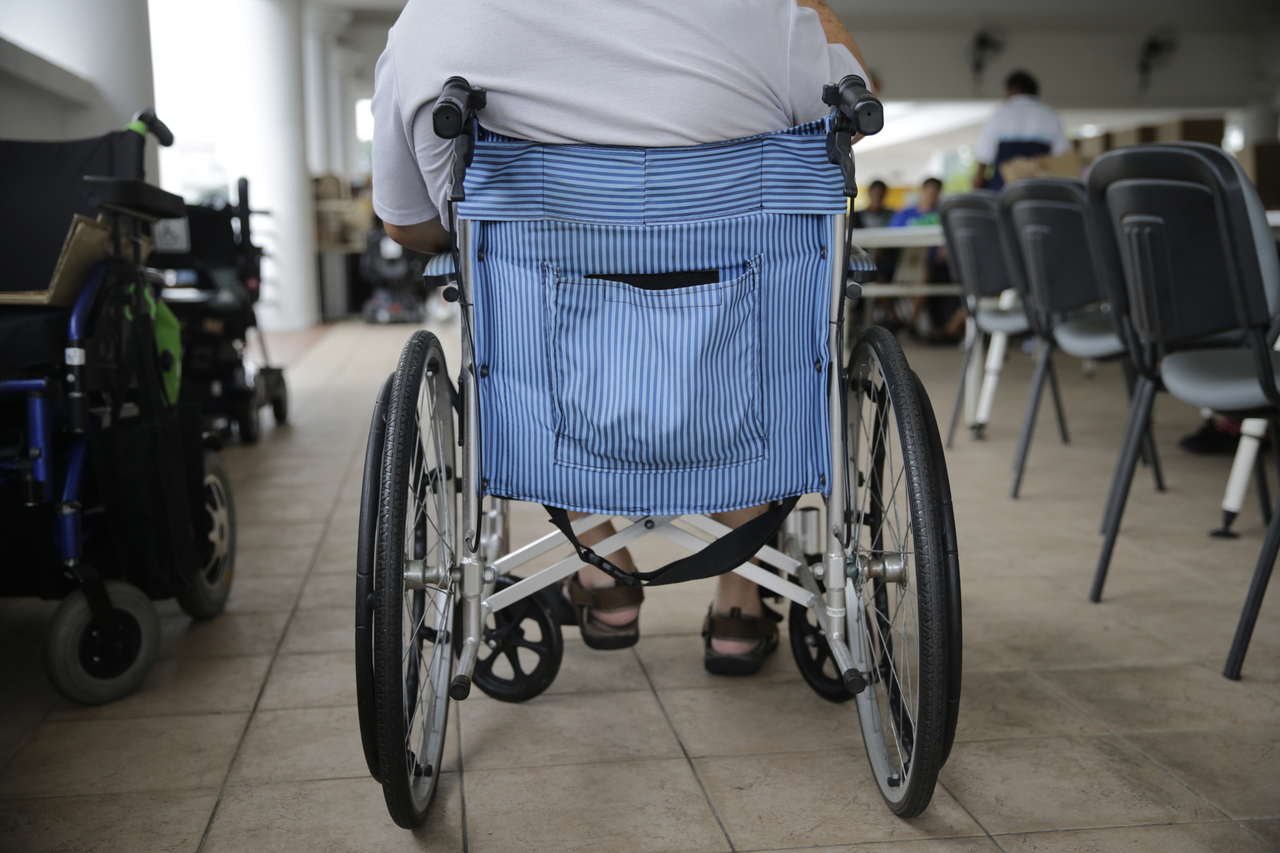Barriers facing disabled in Japan are more than physical
Activists point to society's thinking that those with disabilities are 'abnormal'
Sign up now: Get insights on Asia's fast-moving developments

There are widespread concerns in Japan over the lack of infrastructure to cope with the needs of the disabled.
PHOTO: ST FILE
Walter Sim Japan Correspondent In Tokyo, Walter Sim
Follow topic:
A young Japanese man with cerebral palsy has died without achieving his cherished dream of entering a normal high school, despite trying 27 times over seven years to enrol.
Mr Jun Watanabe, 21, died last November after being repeatedly denied admission to prefectural high schools where he lived in Chiba, east of Tokyo, although they had vacancies for new students, the Mainichi daily reported this week.
Mr Watanabe's case epitomises a startling lack of empathy for the disabled in Japan, which will host the Paralympic Games from Aug 25 to Sept 6 this year in Tokyo.
There are widespread concerns over the lack of infrastructure to cope with the needs of the disabled, even if strides have been made.
Last year, Japan for the first time elected two severely disabled parliamentarians to the Upper House, forcing the reconstruction of barrier-free ramps at the National Diet.
Still, while Tokyo has woken up to the need for more social hardware, with more wheelchair ramps and train platform doors gradually being built, progress has been slow, said Mr Katsunori Fujii, 70, who is blind and heads the Japan Council on Disability.
He said there are about 9.6 million people with physical, intellectual and psychiatric disabilities in Japan, and a further 6 million with dementia. This means about 15.6 million - or more than one in 10 Japanese - are suffering from a disability, he said.
But what is worse than the slow progress in building infrastructure, he said, is the fact that the disabled may still get turned away even if the hardware is in place.
A study last October by the Japanese arm of global disabled rights group Disabled Peoples' International showed that 27 per cent of the handicapped have been refused service by "universal design" barrier-free taxi drivers, whether they flag one down or make an advance booking.
"We can see that even if the physical infrastructure is in place, psychological barriers to accessibility are often harder to overcome," said Mr Fujii. "This is not an issue unique to universal design taxis, but to society in general."
Even Japanese Prime Minister Shinzo Abe has not escaped blame for this.
At the centre of a cronyism scandal, he came under pressure from the opposition last month over the guest list for a sakura spring garden party - where Mr Abe is alleged to have wined and dined voters. The opposition said the list had been conveniently shredded the same day a request was made for it.
Mr Abe said at the time that it was "because of the work schedule of the disabled contractor in charge".
Twitter user Mia Doi, whose profile says she is in her third year of high school, wrote: "Specifying that a disabled person did it implies that this could not be helped.
"The comment is bigoted and suggests the prime minister's prejudiced thinking that the disabled are prone to make mistakes."
There are also other instances of discrimination against the disabled, not least an August 2018 scandal in which the central government was found to have artificially inflated the numbers of the disabled under its employment for more than 40 years.
Furthermore, the trial for a 2016 case of mass murder targeting the disabled is set to begin next week.
The Hitler-inspired alleged perpetrator Satoshi Uematsu, 29, had targeted the disabled to "cleanse" society, killing 19 and injuring 27 others in their sleep at a care facility south-west of Tokyo.
While that is an extreme case, sociologist Emi Kataoka of Komazawa University in Tokyo told The Straits Times: "Japan is a society where there is wide displeasure towards being caused trouble by other people. This feeds into the thinking that the disabled are inferior and abnormal 'others'."
With the Paralympic Games in sight, Mr Fujii had this to say: "Those with disabilities cannot just jump into the euphoria of the Paralympics, which will only be a fragile success if behind that great big event are many violations of human rights that continue to affect a large number of disabled people."

